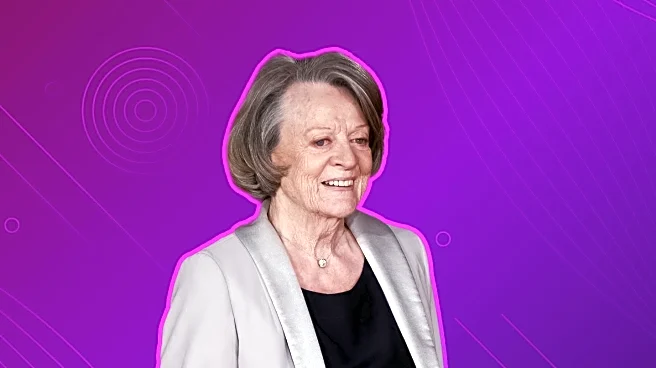What's Happening?
As flu season approaches, health experts emphasize the importance of vaccinations for older adults, particularly those over 60. Dr. Chris Vercammen and Dr. Grant Fowler highlight six critical vaccines: flu, COVID, TDAP, RSV, pneumococcal, and shingles. These vaccines protect against severe illnesses such as pneumonia, meningitis, and shingles, which can be life-threatening for older adults. The flu vaccine is especially crucial, given last year's lower vaccination rates and high mortality among those 65 and older. Experts recommend proactive vaccination schedules to prevent serious health complications.
Why It's Important?
Vaccinations play a vital role in protecting older adults from serious illnesses, reducing hospitalizations, and preventing complications. As the population ages, maintaining high vaccination rates is essential to safeguard public health and reduce healthcare costs. The emphasis on vaccines for older adults reflects broader efforts to address age-related health risks and improve quality of life. Ensuring access to vaccines and encouraging adherence to recommended schedules can prevent outbreaks and protect vulnerable populations, contributing to healthier communities and reducing the burden on healthcare systems.
What's Next?
Healthcare providers are likely to increase outreach and education efforts to ensure older adults receive recommended vaccines. Public health campaigns may focus on raising awareness about the importance of vaccinations and addressing barriers to access, such as transportation and healthcare availability. As flu season progresses, monitoring vaccination rates and health outcomes will be crucial to assess the effectiveness of these efforts. Collaboration between healthcare providers, community organizations, and policymakers may enhance strategies to improve vaccination coverage and protect older adults.
Beyond the Headlines
The focus on vaccinations for older adults underscores the importance of preventive healthcare and proactive health management. It highlights the need for tailored health strategies that address the unique risks and needs of aging populations. The emphasis on vaccines also reflects broader public health goals to reduce disease burden and improve population health outcomes. Long-term implications may include shifts in healthcare priorities and increased investment in preventive care, contributing to healthier aging and reduced healthcare costs.








